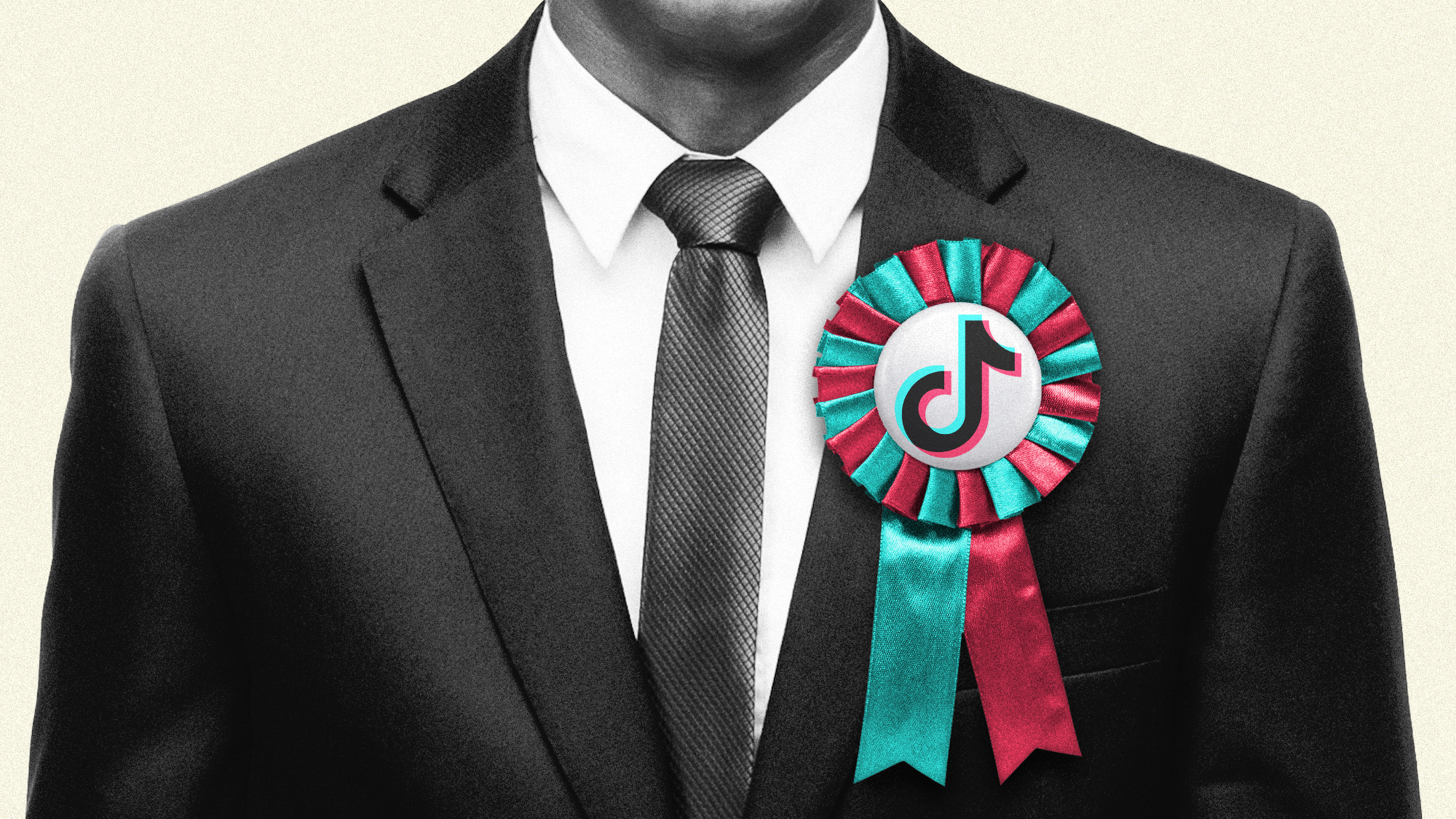The UK's first TikTok election
Labour and Conservatives launch on the video-sharing app deemed so valuable by US Democrats in reaching young voters

A free daily email with the biggest news stories of the day – and the best features from TheWeek.com
You are now subscribed
Your newsletter sign-up was successful
Labour and the Conservatives have opened a new general election battleground by launching accounts on the video-sharing app TikTok.
The social media landscape has radically changed since the last election in December 2019, when TikTok was the new kid on the block and a relative minnow compared to the likes of Facebook and Twitter (now X). Turbocharged during the pandemic, the platform has enjoyed remarkable global growth in recent years and now boasts around 9 million UK users, the vast majority of them under 30.
This makes it a potential electoral goldmine for political parties hoping to tap into a famously hard-to-reach and disengaged demographic.
The Week
Escape your echo chamber. Get the facts behind the news, plus analysis from multiple perspectives.

Sign up for The Week's Free Newsletters
From our morning news briefing to a weekly Good News Newsletter, get the best of The Week delivered directly to your inbox.
From our morning news briefing to a weekly Good News Newsletter, get the best of The Week delivered directly to your inbox.
The Chinese app was banned from UK government devices in March 2023 due to data security concerns, and while these have not disappeared "the political reality appears to have trumped them", said James Titcomb in The Telegraph.
How are political parties using it?
"The first surprising thing about the TikTok accounts of the Conservatives and Labour is that neither are more than a week old," said Metro. Despite the "mammoth influence" that the social network holds over young people, both parties decided to wait until the general election was called last week before setting up on the platform.
Given TikTok's user demographic it is perhaps unsurprising that both parties have chosen to focus much of their early content on the Conservatives' controversial plans to reintroduce national service for 18-year-olds.
Unlike other social media platforms, paid-for political advertising is banned on TikTok, meaning the parties will be hoping to "create content that performs well organically", said The Times.
A free daily email with the biggest news stories of the day – and the best features from TheWeek.com
So far Labour has opted for a "President Biden-style blend of humorous content, which is often less slick than those graphics and videos found on other platforms, alongside more traditional promotional videos". Unlike the Conservatives' initial efforts, which included a staid Rishi Sunak talking directly to camera, Labour has released a series of tongue-in-cheek videos featuring Lord Farquaad from "Shrek" and the late Cilla Black mocking the national service policy.
"It's pretty clear that Labour have a savvier social media team," Chris Stokel-Walker, author of "TikTok Boom: The Inside Story of the World’s Favourite App", told The Independent. Meanwhile, "for someone meant to be tech-savvy, Sunak's TikTok presence has been pretty pathetic".
Can it actually make a difference?
Social media has been a "vital part of winning elections for almost two decades," said Titcomb. Barack Obama used Facebook to finance his 2008 path to the White House, while Donald Trump's activity on Twitter won him billions of dollars' worth of free publicity in 2016. But "hogging the online limelight is more crucial than ever" today.
As the percentage of voters who get their news from traditional sources – such as TV, radio and newspapers – has fallen, the importance of social media to deliver key campaign messages has exploded. In 2023, 10% of people said they got their news from TikTok. This is more than Radio 1, said Titcomb, and among 12- to 15-year-olds, "it is Britain's second-biggest source after the BBC".
Newly relaxed election spending limits mean millions more are set to be spent on digital campaigning than in any previous poll, but given young people's traditionally low turnout at elections, the impact of TikTok on the overall outcome is debatable.
The platform is deemed so valuable for Democrats in the US that Gina Raimondo, the US commerce secretary, speculated last year that any ban could "literally lose every voter under 35, for ever".
So will Labour win the TikTok battle?
While Labour's message will likely resonate more with the younger TikTok demographic, Keir Starmer and Sunak "face a similar challenge", said The Spectator's political editor Katy Balls.
Some of the politicians who do best on the platform are "strident, dynamic and straight-talking". The right-wing populist Javier Milei used TikTok for his successful campaign for the Argentinian presidency last year, while closer to home Nigel Farage, a two-year veteran of the app, has racked up almost 600,000 followers, more than 10 times the number Labour had reached as of early this week.
It may not be either Sunak or Starmer's most natural environment, said Balls, but "there is a clear electoral prize for whichever leader can make the platform work to their advantage".
Elliott Goat is a freelance writer at The Week Digital. A winner of The Independent's Wyn Harness Award, he has been a journalist for over a decade with a focus on human rights, disinformation and elections. He is co-founder and director of Brussels-based investigative NGO Unhack Democracy, which works to support electoral integrity across Europe. A Winston Churchill Memorial Trust Fellow focusing on unions and the Future of Work, Elliott is a founding member of the RSA's Good Work Guild and a contributor to the International State Crime Initiative, an interdisciplinary forum for research, reportage and training on state violence and corruption.